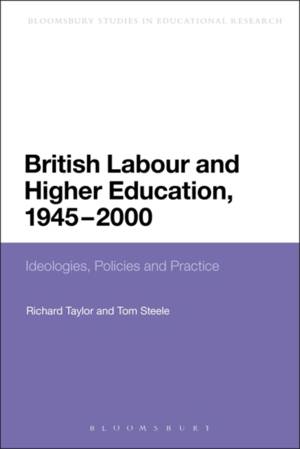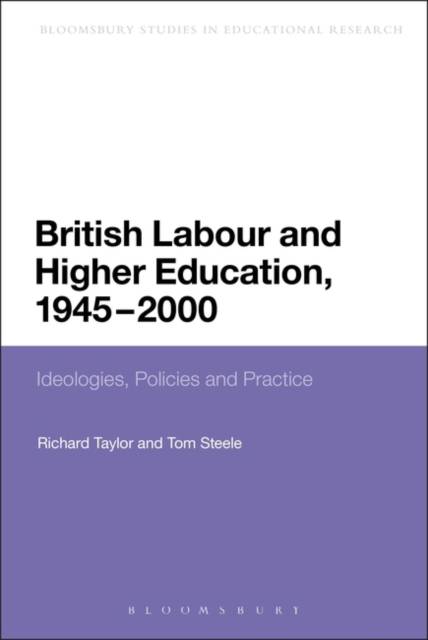
- Retrait gratuit dans votre magasin Club
- 7.000.000 titres dans notre catalogue
- Payer en toute sécurité
- Toujours un magasin près de chez vous
- Retrait gratuit dans votre magasin Club
- 7.000.0000 titres dans notre catalogue
- Payer en toute sécurité
- Toujours un magasin près de chez vous
Description
Higher education provision is an essential component (socially as well as economically) of modern social structures. British Labour and Higher Education focuses on the development of Labour policy on higher education from 1945 to 2000. It analyses the rapid expansion and series of fundamental transformations in higher education and Labour's part in both shaping and reacting to them. The authors explore the historical evolution and Labour's varying policy initiatives in the period, and question the place higher education has occupied in the various strands of Labour ideology. As always with 'Labourism', perspectives are contentious and contested, spanning the centralist 'Fabians', the liberal moralists, and the socialist left.
How far, if at all, have Labour's policy stances in this area confronted the elite social reproduction functions of universities or the instrumentalist needs of corporate capitalism? Has this policy evolution given concrete evidence to support Ralph Miliband's pessimistic assessment of 'Labourism' as a political formation structurally unable to confront capitalist social structures, or to see a viable 'Third Way', as advocated by New Labour?Spécifications
Parties prenantes
- Auteur(s) :
- Editeur:
Contenu
- Nombre de pages :
- 192
- Langue:
- Anglais
- Collection :
Caractéristiques
- EAN:
- 9781441123169
- Date de parution :
- 24-01-13
- Format:
- Livre broché
- Format numérique:
- Trade paperback (VS)
- Dimensions :
- 156 mm x 234 mm
- Poids :
- 276 g

Les avis
Nous publions uniquement les avis qui respectent les conditions requises. Consultez nos conditions pour les avis.






